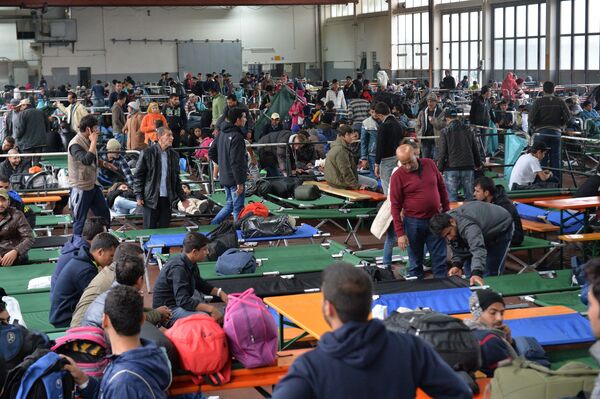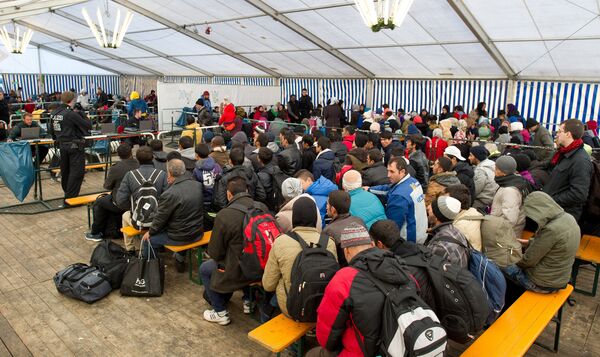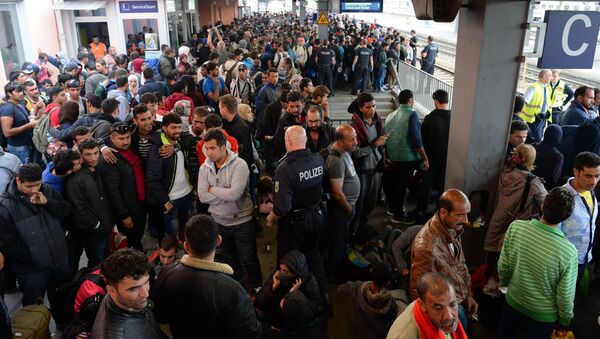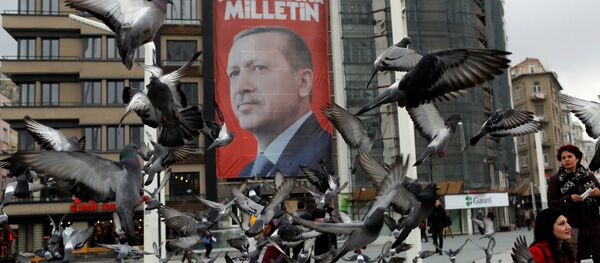In response to the ban, high-ranking Turkish politicians, including the Foreign Minister and Minister of EU Affairs Omer Celik threatened to cancel the refugee deal with the European Union.
Russian political analysts have commented on the threat, explaining what consequences it might have for the European bloc and whether it is actually aimed at Europe at all.
'It would be a catastrophe for Merkel'
Senior Researcher at the Europe Institute in the Russian Academy of Sciences, Igor Maximychev, noted that since the deal was signed, the inflow of refugees into Europe has considerably fallen, however it hasn't fully stopped. The cancelation of the deal, he told RT channel, would have very serious consequences for the EU.

The migrants will initially pour into Greece and then, just like in 2015, they will head to Germany.
"So the 2 million refugees already living in Europe will be joined by nearly the same amount of newcomers. The refugee crisis will turn once more into a nightmare for the Old Continent," he told the channel.
Meanwhile, he added, Europe has not found a solution to tackle this phenomenon. In addition, the eastern European countries do not follow the EU norms for accepting refugees. This means, the expert said, that the newcomers will arrive mostly in Old Europe, which would be a catastrophe for Merkel.
The cancelation of the agreement might also drastically affect the upcoming elections in Germany and France, he added. The refugee crisis has already triggered right-wing sentiments in Europe, and the second inflow of migrants could usher right-wing politicians to power, he suggested.
Germany, he said, will be the first to find itself at risk. France, Maximychev said, is not that affected by the refugee crisis as the basic inflow of refugees mainly comes from its former colonies. However Germany will come under more pressure.

It will have a serious impact on Chancellor Merkel prior to the country's upcoming parliamentary elections. Many people in Germany, he said, are displeased with the fact that the standard of living and living conditions for refugees are better than those for the poor local population, And Merkel, he suggested, will try to do her best to prevent the new inflow before September.
External or Internal Factor?
"It is only rhetoric, aimed at internal processes ahead of the upcoming constitutional referendum. The ongoing spat with the European politicians only proves that Turkey is pursuing its own politics and appears to stand up to European countries," he told RT.
Meanwhile Yuri Mavashev, the head of the political department at the Center for Modern Turkish Studies, has suggested that there is an "oversea motive" in the rhetoric of Turkish officials. He noted that US Secretary of State is set to visit Turkey at the end of March. And the threat voiced to Europe might be an attempt to attract attention of the new US administration.
It might be a signal that Turkey is not that eager to get into the EU and is not in "the EU' pocket," he added.
"Thus Turkey is trying to demonstrate to the US that it wants to play a larger role in the region," the expert concluded.
However he doubted that Turkey will actually cancel the deal with the EU.
"The Turks need a leverage to pressure Brussels, especially in conditions of the deteriorated conflict with the EU. If they cancel the deal unilaterally, they will face the refugee crisis on their own territory, which they will be forced to deal with on their own. The EU, for now, has been helping Turkey financially, which it might stop doing," he finally stated.




